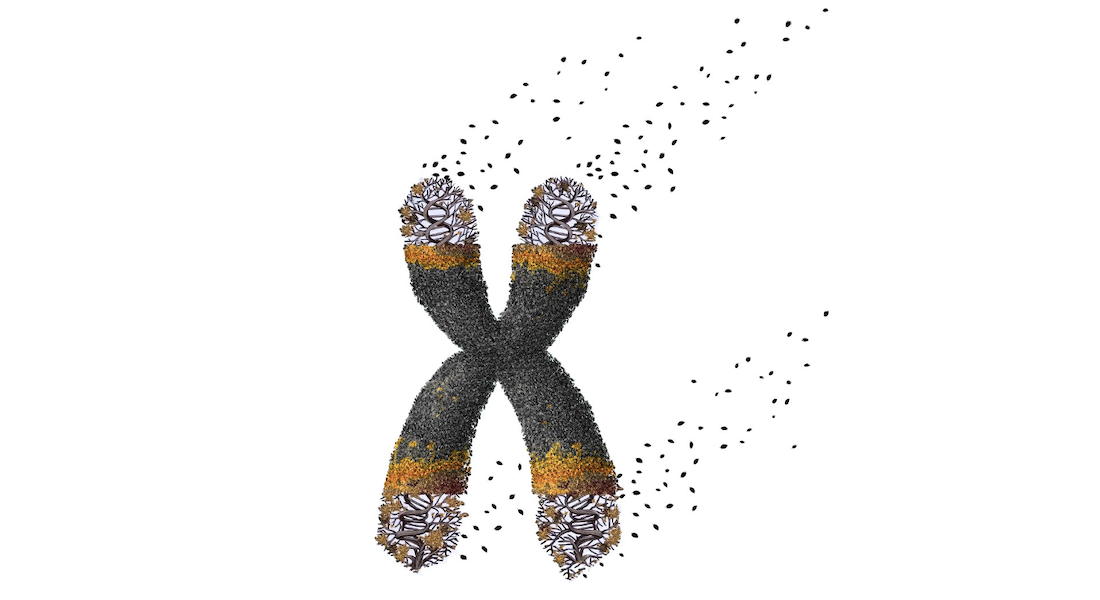Do chromosome ends shape gut microbiota-host interactions?
A new review explores the complex relationship between telomere shortening in gut tissues and changes in the microbiome, revealing how this dynamic interaction impacts inflammation, dysbiosis, and ultimately aging across different species.

The review titled "Telomere Dynamics as Mediators of Gut Microbiota–Host Interactions" by researchers Michael Pepke, Søren Blikdal, and Morten Limborg explores the intricate links between telomere dynamics and gut microbiome composition. “We know that hosts respond differently to identical microbiome treatments so it is important that we seek to understand the mechanisms explaining why.” says Morten Limborg.
Crosstalk between hallmarks of aging
The study reveals how telomeres, the protective caps at the ends of chromosomes, rapidly shorten in the gut, impacting not only local tissue health but also systemic aging and inflammation in the body. This research demonstrates that gut telomere dynamics influence, and are influenced by, microbiota composition and activity, highlighting a bidirectional relationship that has far-reaching implications for aging and disease.
Telomeres, known for their role in aging, shorten naturally as cells divide, leading to cell death when they become critically short. The gut, with its high cell turnover, experiences particularly fast telomere shortening. “This rapid loss in the gut triggers a cascade of effects, such as inflammation, dysbiosis (microbial imbalance), and compromised gut barrier function. Interestingly, this relationship is bidirectional - the microbiome can also affect telomere dynamics.” says Michael Pepke. “For instance, beneficial gut bacteria, like those producing short-chain fatty acids, can reduce oxidative stress, slowing down telomere shortening. Meanwhile, harmful bacteria can accelerate the process” Michael ends.
New research avenues
The research also draws connections to human health, suggesting that diseases like inflammatory bowel disease may be influenced by telomere dysfunction, linking gut inflammation, telomere shortening, and microbiota imbalances. These findings open new avenues for exploring how improving gut health through microbiota modulation could help mitigate aging-related diseases by protecting telomere integrity.
This work suggests that telomere dynamics are a key player in host-microbiota interactions, offering potential therapeutic strategies targeting gut microbiome-telomere crosstalk to promote healthy aging.
Read the article in Trends in Cell Biology here.
Early-life effects
In addition, first author Michael Pepke has received a 2024 Pilot Award from the Telomere Research Network allowing him to dive into a new project titled: ”Telomere dynamics as mediators of gut microbiota-host interactions in early-life”.
Michael Pepke explains: “Early-life telomere dynamics can have life-long consequences on host health and aging. Using the FinnBrain cohort of Finnish infants and their mothers, this project will shed light on the role of the gut microbiota in setting the early-life telomere length. Furthermore, it will investigate if microbiota-telomere interactions can influence inflammation and stress in early-life.”
In addition to a better understanding of the aging holobiont physiology, findings from these studies may inform future research aimed at improving treatments for gut microbiota dysfunction, gastrointestinal or telomere-mediated diseases.
Contact
Postdoc Michael Pepke
